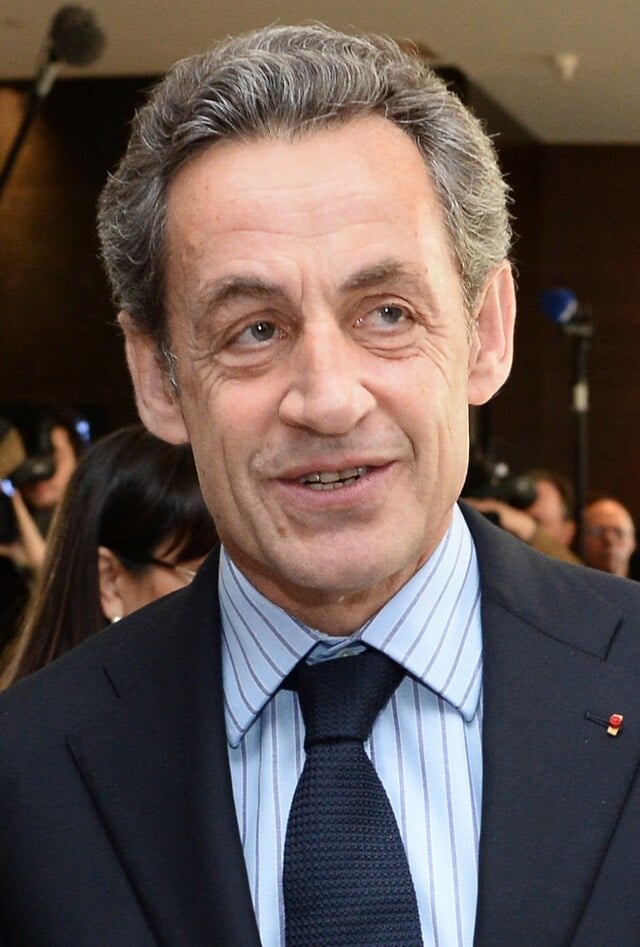Former French President Nicolas Sarkozy could face seven years in prison after being found guilty of criminal conspiracy in a landmark case involving alleged illegal campaign financing from late Libyan strongman Muammar Gaddafi, a Paris court ruled on Thursday.
The 70-year-old, who served as president from 2007 to 2012, was convicted of criminal conspiracy between 2005 and 2007 but acquitted of all other charges including passive corruption, illegal campaign financing, and concealing the embezzlement of public funds.
The Paris criminal court found that Sarkozy had “allowed his close aides to act with a view to obtaining financial support” for his successful 2007 presidential campaign, according to presiding judge Nathalie Gavarino. The court ruled that after 2007, Sarkozy was protected by presidential immunity.
Prosecutors had alleged that Sarkozy struck a “corruption pact” with Gaddafi in 2005 whilst serving as France’s interior minister, accepting millions of euros in exchange for supporting the then-isolated Libyan government on the international stage and promising leniency for Gaddafi’s brother-in-law, Abdallah Senoussi, who had been convicted in France for a 1989 airline bombing that killed 170 people.
French prosecutors have sought a seven-year prison sentence for the former president, alongside a €300,000 (£255,000) fine and a five-year ban from holding public office. The court was expected to announce sentencing later on Thursday, though Sarkozy can appeal the verdict, which would suspend any sentence pending the appeal process.
I will fight to the end to prove my innocence,” Sarkozy told Le Figaro newspaper earlier this month, denouncing the proceedings as politically motivated. Throughout the three-month trial that concluded in April, Sarkozy maintained his innocence, declaring: “You will never ever find a single euro, a single Libyan cent, in my campaign.”
The case originated from revelations by investigative website Mediapart in 2012, which published documents purporting to show that Gaddafi had agreed to provide Sarkozy with up to €50 million (£42.5 million) for his 2007 campaign – more than double the legal limit of €21 million at the time.
Evidence presented during the trial included testimony from seven former Libyan dignitaries, documented trips to Libya by Sarkozy’s chief aide Claude Guéant and former minister Brice Hortefeux, financial transfers, and notebooks belonging to former Libyan oil minister Shukri Ghanem, who was found drowned in the Danube river in Vienna in 2012.
Franco-Lebanese businessman Ziad Takieddine, a key figure in the case, had claimed to have delivered suitcases containing up to €5 million (£4.25 million) in cash from Libya to Sarkozy and his associates in 2006 and 2007. However, Takieddine dramatically retracted his statement in 2020 before later contradicting his own retraction. He died of cardiac arrest at age 75 just days before Thursday’s verdict, having been living in Lebanon to escape a French arrest warrant.
The conviction adds to Sarkozy’s mounting legal troubles. In December 2024, France’s highest court upheld a 2021 conviction for corruption and influence peddling, sentencing him to wear an electronic tag for one year – a first for a former French president. He also received a one-year sentence in a separate campaign finance case involving his failed 2012 re-election bid.
In June, Sarkozy was stripped of his Legion of Honour, France’s highest distinction, becoming only the second former head of state to lose the award after Nazi collaborator Philippe Pétain. The Legion of Honour code automatically disqualifies anyone sentenced to a definitive prison term of at least one year.
Eleven others stood trial alongside Sarkozy, including his former right-hand man Claude Guéant, his then-head of campaign financing Eric Woerth, and former minister Brice Hortefeux, all of whom denied the charges.
The case has particular resonance given Sarkozy’s role in the 2011 NATO intervention that led to Gaddafi’s overthrow and death. Having initially welcomed the Libyan leader to Paris in 2007 – allowing him to pitch his Bedouin tent opposite the Élysée Palace – Sarkozy later became one of the first Western leaders to push for military action against the regime during the Arab Spring protests.
Despite his legal troubles, Sarkozy remains an influential figure in French politics. He recently met with newly appointed Prime Minister Sébastien Lecornu, who took office on 9 September following the collapse of François Bayrou’s government. Lecornu, a former protégé of Sarkozy who defected from The Republicans to join President Emmanuel Macron’s party in 2017, reportedly received assurances of friendship and support from the former president during their meeting.
During the trial, prosecutor Sébastien de la Touanne painted “a very dark picture of a part of our Republic,” describing Sarkozy as engaged in a “frantic quest for funding” to satisfy a “devouring political ambition” that was “fanned by ambition, lust for power and greed.”
The verdict marks a historic moment in French politics, highlighting the judiciary’s capacity to hold even the highest officials accountable for corruption. It also raises questions about France’s past dealings with authoritarian regimes and the influence of foreign money in democratic elections.
Sarkozy has announced his intention to appeal to the European Court of Human Rights if necessary, claiming his democratic rights were violated during the investigation. His lawyers have consistently argued that the case is built on unreliable documents and testimony, with no concrete evidence of Libyan funds entering his campaign coffers.
The case’s implications extend beyond France’s borders, serving as a reminder of how Western democracies’ engagement with dictatorships can have lasting consequences for both domestic politics and international relations. As one analyst noted, the trial “exposes corruption’s impact on Libyans” and challenges France to reckon with the human rights consequences of its foreign policy decisions.
Follow for more updates on Britannia Daily



